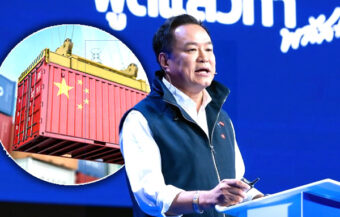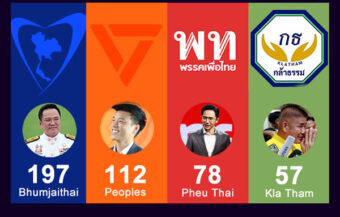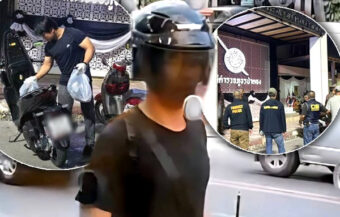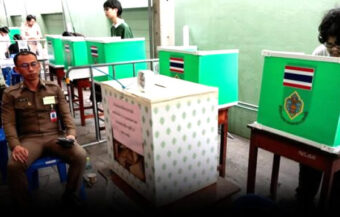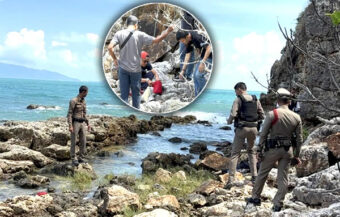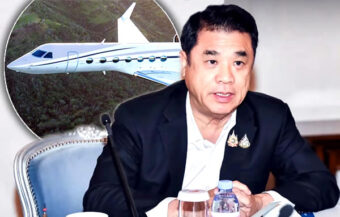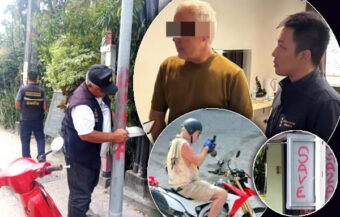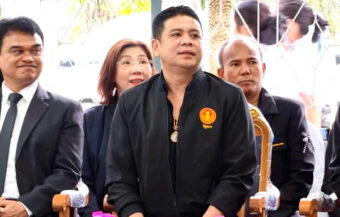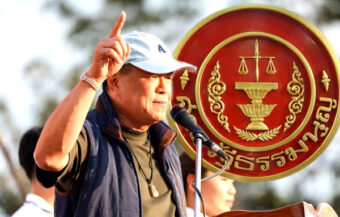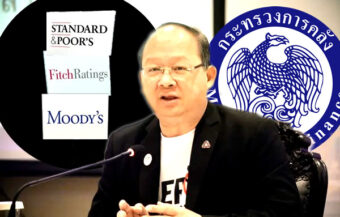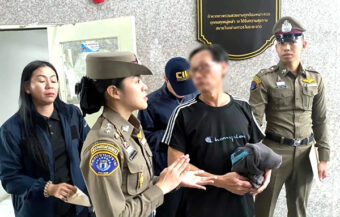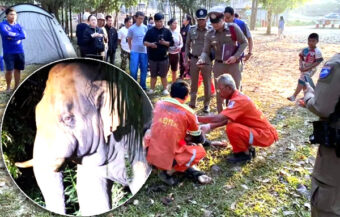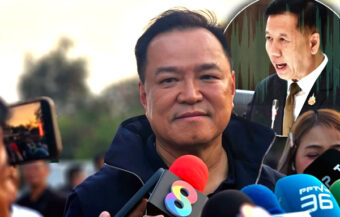Pressure mounts on Thai PM Anutin as Southeast Asian scam centres targeting the U.S. draw Washington’s scrutiny, with Judge Jeanine Pirro joining FBI and Secret Service operations to crack down on transnational networks and illicit financial flows.
Southeast Asian scammer compounds targeting the U.S. are raising urgent concern in Washington, D.C., increasing pressure on Prime Minister Anutin Charnvirakul’s government. The PM travelled to Mae Sot this week after Myanmar’s junta bombed scam centres and expelled thousands of illegal workers linked to a Thai-registered company. Meanwhile, U.S. news highlighted District of Columbia Attorney General and former TV star Jeanine Pirro’s involvement, further intensifying scrutiny. The Thai government faces accusations of indecision amid claims that some officials are connected to the networks.
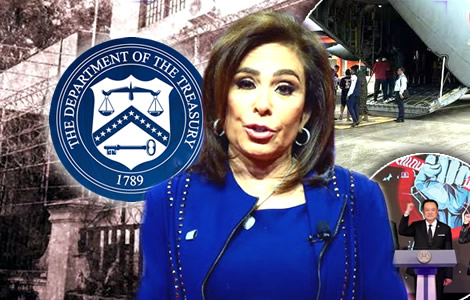
Judge Jeanine Pirro, the Trump-appointed U.S. Attorney for the District of Columbia, has joined the U.S. campaign against Southeast Asian scam networks. She is working directly with the FBI and the U.S. Secret Service. Consequently, her involvement increases pressure on Thai authorities and regional law enforcement.
Pirro brings over three decades of law enforcement experience. She served as Assistant District Attorney in Westchester County, New York, became the first female judge elected to the Westchester County Court, and served three consecutive terms as Westchester County District Attorney. She also established the first domestic violence unit in a prosecutor’s office nationwide.
The United States is increasing investigations into scam compounds across Southeast Asia, including Cambodia, Myanmar, and Laos. Thailand is a central focus due to exposed money laundering and corruption linked to transnational criminal groups.
Chinese mafia controls major Southeast Asian scams as Cambodian companies face U.S. sanctions
Reports indicate that Chinese mafia networks heavily influence many of these operations. In Cambodia, some networks have evolved into large corporate entities, including a bank sanctioned by U.S. authorities in October. Prime Minister Anutin Charnvirakul has repeatedly pledged a crackdown. However, he has not addressed concerns regarding cabinet members’ links to scam networks identified by parliamentary committees.
Last week, he travelled to Mae Sot in Tak province to oversee operations targeting scam gangs in Myanmar. There, the junta bombed and levelled multiple scam compounds. Additionally, foreign nationals working illegally in the centres were expelled. By contrast, no major enforcement has been reported in Cambodia. Meanwhile, the U.S. Department of Treasury sanctioned a Myanmar-based rebel armed group for its links to criminal elements behind the scams.
The growing impact on U.S. citizens has prompted stronger enforcement by federal authorities.
FBI crackdown in Cambodia’s Prince Group sparks follow-up investigations in Thailand and Singapore
In October, the FBI, led by Kash Patel, executed a major crackdown against the Prince Group, a bank and large business conglomerate in Cambodia, and its leader, Chen Zhi. Consequently, authorities anticipate follow-up operations in Thailand and Singapore, where significant financial trails have been identified.
Thai government agencies and the business sector warn that failing to dismantle these networks could provoke U.S. financial sanctions. Such sanctions could severely affect Thailand’s economy. The U.S. Department of Justice recently announced a new “Scam Centre Strike Force” to combat cryptocurrency and investment fraud across Southeast Asia. This interagency task force investigates, disrupts, and prosecutes the most egregious schemes. Authorities estimate Americans lose tens of billions annually to these operations. Networks operate from compounds in Cambodia, Laos, and Myanmar, where fraudulent revenue can represent nearly half of local GDP in some areas.
U.S. victims are often lured to fake cryptocurrency websites and applications hosted by American companies. Funds are then laundered abroad. Both the U.S. and China have pressured regional governments to crack down. This week, Thailand extradited She Zhijiang, a Chinese-born Cambodian, at Beijing’s request. He is accused of involvement in the scams.
Pirro emphasises the role of Chinese-linked operators as U.S. strike force targets internet links
Pirro highlighted the role of ethnic Chinese or Chinese-linked operators. Many relocated from mainland China after Beijing’s crackdown on gambling and scams. Consequently, the strike force is targeting U.S.-based infrastructure facilitating the networks, including social media accounts and internet service providers. It is also collaborating with U.S. companies to sever access to offshore scam centres.
The effort involves the U.S. Attorney’s Office for the District of Columbia, the Justice Department’s Criminal Division, the FBI and the U.S. Secret Service. Authorities have already seized over $400 million in cryptocurrency and announced proceedings to recover another $80 million for victims.
Additionally, the chairman of Cambodia’s Prince Group was charged for operating a “sprawling cyber fraud empire,” leading to the seizure of Bitcoin valued at approximately $5 billion—the largest forfeiture action ever reported.
US Treasury sanctions DKBA leaders and Thai companies for supporting scam centres targeting Americans
Separately, the U.S. Treasury’s Office of Foreign Assets Control (OFAC) sanctioned Myanmar’s Democratic Karen Benevolent Army (DKBA) and four senior leaders because they were accused of supporting scam centres targeting U.S. citizens.
Meanwhile, Myanmar’s military government has detained thousands of foreign nationals in connection with online scams and plans to demolish more than 600 buildings linked to these operations.
Myanmar’s Foreign Affairs Minister Than Swe reported that 67,982 foreign nationals from 52 countries were deported over two years for illegal entry. Furthermore, he added that gangs and armed groups have received internet, electricity, and financial services from neighbouring countries. Consequently, he called for greater cross-border cooperation to combat transnational crime.
On 12 November, OFAC blacklisted the DKBA and four senior leaders. It also sanctioned Trans Asia International Holding Group Thailand Company Limited, Troth Star Company Limited, as well as Chamnan Sawang, a Thai national with Chinese mafia links. Moreover, they were accused of developing scam centres in Burma and Thailand. In addition, workers at these centres were often trafficked victims forced to support criminal operations.
US officials say Burmese scam networks steal billions from Americans and facilitate human trafficking
John K. Hurley, Assistant Secretary for Terrorism and Financial Intelligence, stated that networks operating from Burma steal billions from Americans. In addition, he noted that they engage in human trafficking as well as support Burma’s civil war. Hurley said the administration would use all available tools to pursue these cybercriminals so that U.S. citizens are protected.
The operations are a joint effort involving the FBI, the San Diego Field Office, the U.S. Attorney’s Office for the District of Columbia, the Justice Department’s Crime Scene Investigation Division, the Secret Service, and the DEA. At the same time, the Scam Centre Strike Force is tasked with investigating, disrupting, and prosecuting major scam centres in Burma, Cambodia and Laos.
The task force coordinates with OFAC, the Department of State, as well as other agencies. It employs sanctions, asset seizures, criminal prosecutions, and infrastructure protection. Furthermore, authorities are facilitating restitution for victims while providing public education.
Officials identified the Taichang Centre near Myawaddy, Karen State, Burma, as a hub of U.S.-targeted fraud. The centre is under DKBA control, whereas it was founded by Brigadier General Say Kyaw Hla with TransAsia, a Thai front for Chinese transnational organised crime. Consequently, TransAsia is now a primary target and is based in Mae Sot, Thailand.
TransAsia expands scam centres in Burma with land leases while OFAC sanctions DKBA and Thai entities
TransAsia entered land-lease agreements with OFAC-blacklisted KNA and Burma-based Troth Star. They developed additional centres, including the Huanya Centre and KK Park Centre in Myawaddy. Operators at these centres frequently targeted U.S. citizens. OFAC also sanctioned DKBA leaders Saw Steel, Saw Sein Win, and Saw San Aung, in addition to Chamnan Sawang. Their assets were seized.
The U.S. crackdown reflects concerns that Thai authorities have not fully acted against the networks. Business and government groups warn that scam operations are embedded in local economic and financial systems. Significantly, failure to act could trigger U.S. sanctions.
The People’s Party has criticised the Thai government for selective enforcement. The upcoming general election has heightened scrutiny. The Bhumjaithai-led government faces pressure domestically and internationally.
Myanmar continues demolitions and detentions. Cambodia has reported no major enforcement, yet Laos remains under observation. U.S. authorities continue investigations, asset seizures, and prosecutions. Regional governments face pressure to cooperate, while Chinese mafia involvement and corporate structures in Cambodia complicate enforcement.
Networks rely on digital and physical infrastructure as U.S. targets operational, financial and leadership
The networks rely on digital and physical infrastructure. Criminal operations include cryptocurrency, offshore accounts, and falsified documentation. Moreover, officials note the operations are highly organised and well-funded.
The U.S. campaign focuses on dismantling financial, operational, and personnel networks. Agencies coordinate with regional governments, seize assets, and prosecute leaders. Certainly, the effort remains ongoing and adaptive to emerging threats.
The enforcement marks an escalation in international action against Southeast Asian scam networks. Agencies target leadership, operational centres, and financial channels. Networks span multiple countries and rely on complex financial systems.
Thai authorities have increased scrutiny of corporate and financial operations linked to scams. Myanmar continues demolitions and deportations. Cambodia has yet to report enforcement, yet remains under observation. Laos remains a focus for intelligence agencies as well.
U.S. Strike Force continues active operations coordinating intelligence, enforcement and monitoring
The U.S. Strike Force remains active, coordinating enforcement, intelligence, and financial monitoring. Meanwhile, additional sanctions, seizures, and prosecutions are expected. Investigations continue across Cambodia, Myanmar, Thailand and Laos.
U.S. officials are meanwhile coordinating with financial institutions, regional authorities and local law enforcement, including the Royal Thai Police. Operations target scam leadership, infrastructure and financial networks. Singapore and Bangkok are key financial hubs for investigations at this time. In short, the heat is on to show compliance and responsible governance standards from all agencies.
Eye popping appointment of Ben Smith’s ex-lawyer as an official at the Prime Minister’s Office defended
Battle with scammers rages within Royal Thai Police as Big Joke continues fight against alleged corruption
Former minister and party leader Sudarat warns of ฿20 billion plot by ‘Scambodia’ to take political power
Prime Minister Anutin Charnvirakul’s government faces new claims of alleged Cambodian scam links
United States, South Korea and United Kingdom act against Cambodian scam industry with Thai tie-ins
The U.S. approach combines legal, financial and operational tools. Meanwhile, authorities maintain international cooperation and continuous monitoring. Enforcement measures include sanctions, prosecutions and infrastructure disruption. Local police emphasise transparency, intelligence-driven action, and cross-border collaboration.
The US Strike Force continues to evaluate effectiveness while monitoring regional government compliance. Furthermore, sanctions, prosecutions and asset seizures are anticipated. From Thailand’s perspective, the government must act quickly and indeed urgently to safeguard its economy and curb international criminal influence.
Join the Thai News forum, follow Thai Examiner on Facebook here
Receive all our stories as they come out on Telegram here
Follow Thai Examiner here
Further reading:
Bombshell as former Police Chief Torsak and 200 senior officers are linked to corruption by board
High powered, secretive meeting chaired by PM agrees robust action against Cambodian networks
Thailand and Cambodia face danger from ‘Dragon Head’ the Chinese mafia leader behind the scams
Cyber police and Money Laundering agency seek UK and US co-operation targeting Cambodian networks

